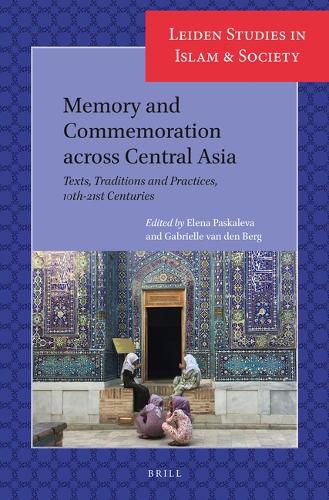Readings Newsletter
Become a Readings Member to make your shopping experience even easier.
Sign in or sign up for free!
You’re not far away from qualifying for FREE standard shipping within Australia
You’ve qualified for FREE standard shipping within Australia
The cart is loading…






Memory and Commemoration across Central Asia: Texts, Traditions and Practices, 10th-21st Centuries is a collection of fourteen studies by a group of scholars active in the field of Central Asian Studies, presenting new research into various aspects of the rich cultural heritage of Central Asia (including Afghanistan). By mapping and exploring the interaction between political, ideological, literary and artistic production in Central Asia, the contributors offer a wide range of perspectives on the practice and usage of historical and religious commemoration in different contexts and timeframes. Making use of different approaches - historical, literary, anthropological, or critical heritage studies, the contributors show how memory functions as a fundamental constituent of identity formation in both past and present, and how this has informed perceptions in and outside Central Asia today.
$9.00 standard shipping within Australia
FREE standard shipping within Australia for orders over $100.00
Express & International shipping calculated at checkout
Memory and Commemoration across Central Asia: Texts, Traditions and Practices, 10th-21st Centuries is a collection of fourteen studies by a group of scholars active in the field of Central Asian Studies, presenting new research into various aspects of the rich cultural heritage of Central Asia (including Afghanistan). By mapping and exploring the interaction between political, ideological, literary and artistic production in Central Asia, the contributors offer a wide range of perspectives on the practice and usage of historical and religious commemoration in different contexts and timeframes. Making use of different approaches - historical, literary, anthropological, or critical heritage studies, the contributors show how memory functions as a fundamental constituent of identity formation in both past and present, and how this has informed perceptions in and outside Central Asia today.